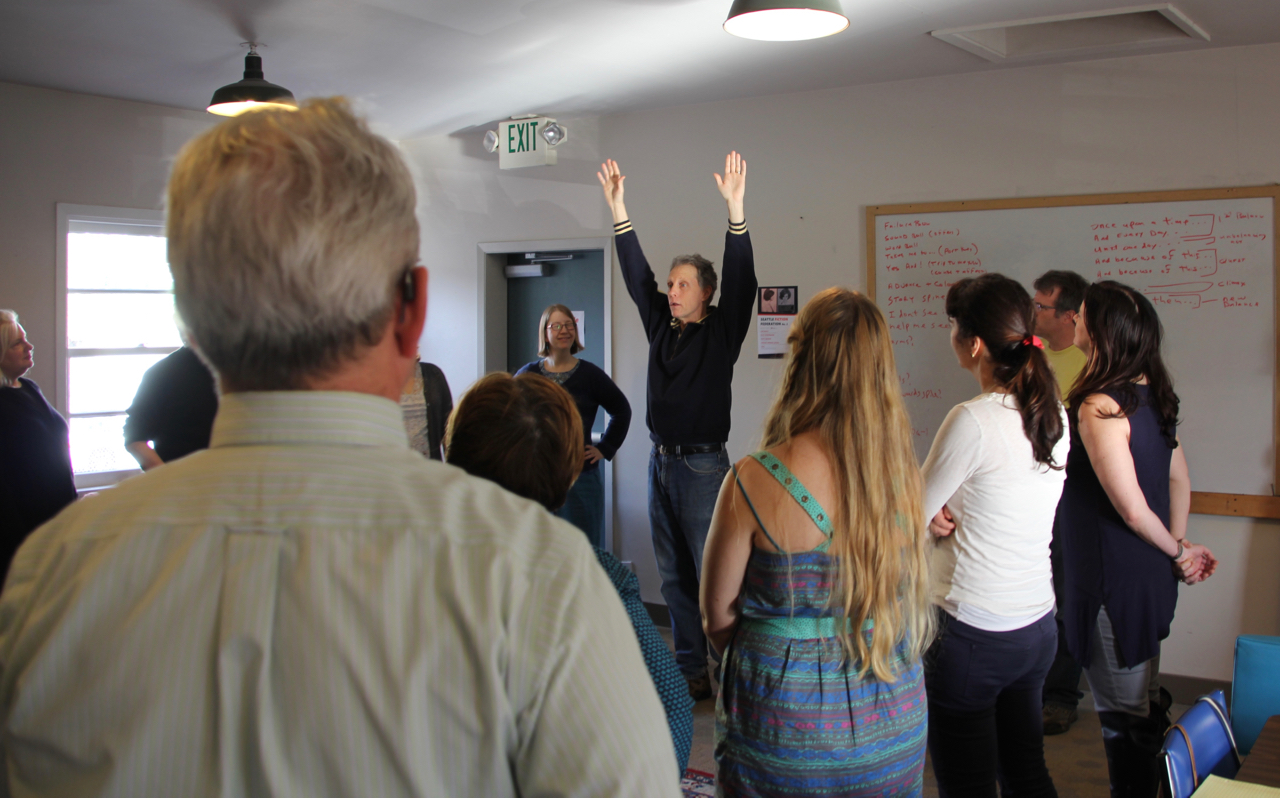 Imagine an environment where all outcomes, including mistakes, massive and miniscule, are treated as sources of inspiration.
Imagine an environment where all outcomes, including mistakes, massive and miniscule, are treated as sources of inspiration.
IMPROVISATION FOR ORGANIZATIONAL INNOVATION
Half-day, full-day, 3-day, extended 3 – 6 months self-designed sessions. Through Improv, you and your team will create a meaningful, learnable, and sustainable systems that you can use to increase productivity and have a better place to work.
Innovative work places exist! They are called healthy because the people there embrace change. These workplaces are also stable, because to live on the creative edge is now a requirement for competition. The alternative is to become…irrelevant. Let’s not do that! The 1st principle of Complexity Theory (from Surfing the Edge of Chaos) is: Equilibrium is a precursor to death. When a living system is in a state of equilibrium it is unaware:, thus unresponsive, to the changes happening around it. This places it as Maximum risk.
Leaders are encouraging themselves and their workers to take risks, but still dormant in their understanding of the word risk is the notion that the unexpected is “unexpected”, and something to be overcome. That ain’t it. It may behoove us to create conditions wherein behaviors once considered risky are no longer perceived as such. They are simply the way we do things around here.
In the best theatre company I was ever a part of, our motto was, That sounds like a terrible idea. Let’s try it! We saved more time than we wasted, and were galvanized behind a single strategy because we were all privy to the purpose, and all riding the same page. When that page turned, we adjusted as a unit without dragging our feet.
Over the past several years I’ve worked with Tobias Mayer, teaching the Agile System (Scrum) of software development. The methodology is easy to comprehend, but difficult for many companies to adopt, partly because those who have historically communicated through documents are now assigned to self-organizing teams and a world of intense face-to-ace collaboration. It is futile to function in the Agile system with a mentality forged from traditional business culture. I bring the principles of improvisation into play for self-organized teams. These principles lay a foundation that keeps individuals and group in the creative mix , making them creative even when uninspired. They bring rhyme to the intellectual reasoning behind a shift from document driven communication to verbal, potent collaboration with other humans.
I studied improvisation so that I could become funny on stage in front of people. What I learned from the training was quite different. I learned to:
Listen
Honor
Be accountable
Be positive
Move things forward
Stay present
Reincorporate
Empathize
Reflect
Validate my own feelings and ideas
Surrender: My agenda,
Negativity,
Judgment,
Control,
Anticipation, and
Pre-determinate listening
More than readying me for the stage, it improved my life! The rules and tools that lead to clear, accountable communication spilled over into my family, community and work relationships, altering them forever. In 1990, I designed my first workshop for DSHS workers in Washington State, introducing tools to help them deal with stress and change. Since then I have been visiting corporate cultures, installing a template for authentic, spontaneous interaction appropriate to any circumstance. What I bring to your group is first hand experience in my own field (performance), years of designing and facilitating organizational trainings, and a true mission to pass on the simple discipline that so enhanced my own life, to the people for whom it can have the most value. Your people.
